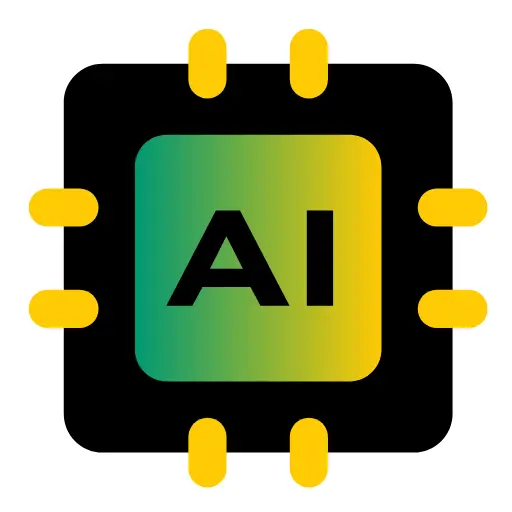World’s First AI Doctor Clinic Opens in Saudi Arabia: Artificial Intelligence is making its dominance in every industry. But till now AI Doctor Clinic was not launched. Let us tell you that now the first AI Doctor Clinic has been launched in Saudi Arabia. This step is like moving the health service forward all over the world.
This entire clinic will work by Artificial Intelligence. In which the patient will be operated without any human, doctor or nurse. This clinic has been launched in Saudi Arabia and it has been opened to the general public. Now discussions about the future of this clinic have started all over the world. Looking at the progress of Artificial Intelligence. Many big changes can be seen in the future.
The Launch: Where and When?
The clinic was officially launched in Riyadh, Saudi Arabia’s capital, in May 2025, under the leadership of the Saudi Ministry of Health in collaboration with private AI healthcare companies. It is a pilot project, but plans are already in motion to scale it across the Kingdom based on initial success and patient feedback.
This bold move aligns with Saudi Arabia’s Vision 2030, an ambitious reform plan that includes heavy investment in emerging technologies, digital infrastructure, and innovation-driven healthcare systems.
What Makes This Clinic Unique?
Unlike traditional medical facilities, this clinic runs entirely on artificial intelligence-based diagnostics and patient care. There are no physical doctors or medical staff in the clinic. Instead, patients interact with AI-powered kiosks, voice-enabled systems, and robotic diagnostic tools that simulate the consultation process.
Key Features of the Clinic:
- Fully Automated Check-in: Patients register using biometric data or national health IDs.
- Voice-based AI Consultation: A virtual AI doctor listens to the patient’s symptoms through speech recognition and natural language processing (NLP).
- Computer Vision Diagnostics: The AI uses high-resolution cameras and sensors to analyze physical symptoms, such as rashes, eye color changes, swelling, or visible injuries.
- Remote Scanning and Lab Integration: The clinic has smart diagnostic machines like AI-powered X-rays, ECGs, and blood-testing units. These are connected to a centralized database that the AI uses for instant analysis.
- Prescription and Recommendations: After diagnosis, the system automatically generates a digital prescription, suggests medication, and even places an order with nearby pharmacies if needed.
- Emergency Alerts: If a case is severe or life-threatening, the AI is designed to automatically alert the nearest hospital and dispatch an ambulance, ensuring no time is lost.
Who Developed the AI Doctor System?
The AI platform was developed by MedoTech, a Saudi AI healthcare startup in collaboration with Silicon Valley-based MedNexa, an AI research firm known for its clinical-grade machine learning models.
The system behind the AI doctor has been trained on millions of anonymized patient records, sourced globally, and reviewed by top human doctors across various medical disciplines. This training data includes case histories, medical images, and patient interactions to improve diagnostic accuracy.
Furthermore, the Saudi government ensured the AI system complies with both international health standards (like WHO regulations) and local Sharia-compliant medical ethics.
Accuracy and Performance
Initial reports from Saudi health authorities suggest the AI doctor has an accuracy rate of over 93%, rivalling that of experienced human physicians in general diagnostic tasks. In some specialized areas like dermatology and ophthalmology, the AI system reportedly outperformed junior doctors in terms of speed and detection of rare conditions.
However, experts have clarified that this AI clinic is not intended to replace human doctors entirely, but rather to augment the healthcare system, especially in regions with doctor shortages or where access to specialized care is limited.
Benefits of AI Clinics
The launch of the AI doctor clinic has highlighted several advantages of such a model:
- 1. 24/7 Availability
AI clinics can operate round-the-clock without fatigue, offering medical services even during late hours or public holidays.
- 2. Scalability
Unlike human doctors, AI systems can be replicated and deployed across multiple locations with minimal cost and training, allowing fast expansion into remote and rural areas.
- 3. Cost-Effectiveness
Operational costs are significantly lower due to reduced staffing requirements, which can potentially lead to more affordable healthcare for patients.
- 4. Data-Driven Insights
AI continuously learns and improves from each interaction. It also provides real-time analytics to health authorities, helping with disease surveillance and public health planning.
- 5. Language Support
Saudi Arabia’s AI doctor supports both Arabic and English, and it is programmed to soon handle multiple regional dialects, making it user-friendly even for non-native speakers.
Global Reactions and Future Expansion
The clinic’s launch has caught the attention of countries like India, the UAE, Singapore, and the UK, where discussions have already begun about adapting similar models. International observers see this as a pivotal moment — not just for Saudi Arabia, but for the future of global healthcare delivery.
Saudi officials have stated their plans to open 10 more AI doctor clinics by the end of 2025, focusing on under-served rural areas. The AI system is also being fine-tuned to specialize in cardiology, oncology, and maternal care in the next update phase.
The Road Ahead
While the world watches Saudi Arabia’s AI doctor clinic, one thing is clear: healthcare is on the brink of a transformation. This isn’t just a technological shift; it’s a paradigm shift in how we think about access, delivery, and the very nature of medical care.
Saudi Arabia has taken a giant leap, blending AI innovation with healthcare infrastructure to serve its citizens better. If this model proves successful in the long term, we could see a new global standard emerge — one where AI doesn’t replace doctors but empowers patients and enhances human decision-making in profound ways.
As the technology matures, the dream of universal, affordable, and accessible healthcare could be closer than we think.




